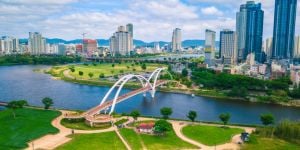The importance of local language in South Korea
See also
Living in South Korea: the expat guideExploring Opportunities: Selling French Products in South KoreaManaging meals in South KoreaRemuneration structure in South KoreaManaging mailboxes or PO boxes in South KoreaHow do you take care of your health in Korea?Ways to lower your expenses/best deals (expats in South Korea)?Make your relocation easier with the South Korea expat guide

Marriage in South Korea
Expatriates from around the world are increasingly choosing to get married in exotic destinations. South Korea is ...

Accommodation in Busan
Busan is located around 450 km from Seoul and is the second largest city in the country. It is a very popular ...

Finding work in Daegu
Daegu is the fourth largest city in South Korea after Seoul, Busan and Incheon. The city has a population of over ...

Finding work in Ulsan
Ulsan is a fast-growing city in South Korea with a population of around 1.2 million. The city has been attracting ...

English Villages.. another type of school
Background

Sick in Korea?
When living in a foreign country and not speaking the language beyond a few words and commands, getting sick and ...

Accommodation in Seoul
Seoul has become one of the most popular destinations in South Korea but finding a home in this city is not an ...

The work culture in Seoul
If South Korea went from a Third World country at the end of the Second World War to one of the most developed and ...



